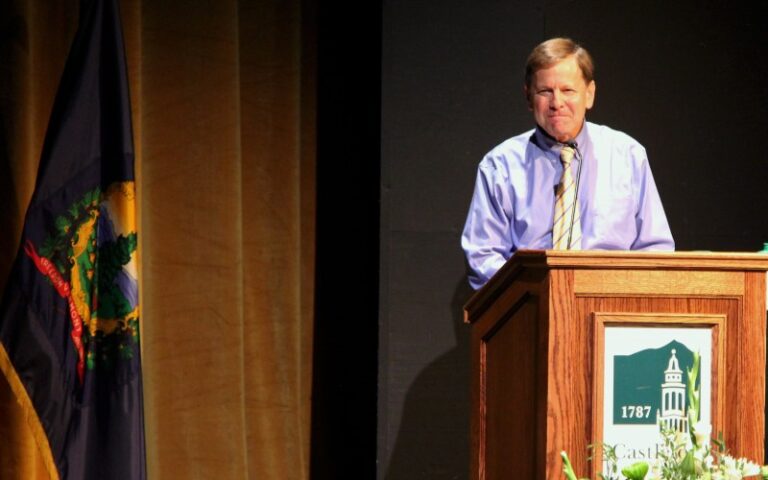Finding my voice in Communication
It was when searching for something to blog about that I found the subject for these bi-weekly posts in plain view in front of my face, or maybe even outside of where I was looking: Finding your voice as a Media and Communication major”
They say you can do almost anything with a communication degree. Fantastic. The only problem with having a million options is you can’t dial the right one in. I’ve got five different left rear spring options for my race cars, and I don’t think I’ve had the right one on yet. Yanno what I mean? I could have written about the Giants, I could have written about life in COVID, I could have written about keeping the social ball rolling as a college commuter. I kept asking myself, “Who gives a shit what I write or think?”
You can smell that in a lot of writing, I think. You read a lot of journalistic pieces where you can just tell this guy or gal KNOWS what a fantastic, blue medal, ‘fridgerator-door’ writer they are. This seems particularly true in journalism and blogs, only because you get the writers’ words and their voice. It happens a lot in editorials. Everyone thinks what they write is really important. You don’t see it as much in fiction or biographical writings, because you’re dealing with different voices and whatever. But in journalism, opinion pieces, books on the government, history, the world, you can tell. They’re a great writer, maybe the best, maybe the most important.
I haven’t ever thought that way about anything. Definitely not writing. My grammar can be shaky, my opinions can be gruff and conservative (nobody wants to read those around here), my sports can be bland or complicated. My fiction lacks drive and focus. Maybe writing isn’t my thing necessarily.
I could write about sports for a living, I guess. And make what? You gotta survive, you know. What kind of questions do you ask in sports now anyway? I’m listening to ESPN radio this morning on the drive up from North Bennington, and Max Kellerman, a good enough sports journalist to be hired by ESPN, asked Jalen Hurts what his expectations were for the Eagles this season. Hurts said the expectation was to win games.
No shit.
Did Kellerman think that Hurts was going to say “Yeah, we’re gonna blow it pretty good. 3-14 I’ll say”? When I ask a coach or player at Castleton what they thought going into the game, or if they ever lost faith during the game, what kind of question is that? It sucks. They always say the right thing. You gotta ask better questions than that. You gotta get better answers than that.
I could write about auto racing, but I couldn’t make you understand it. I couldn’t make it make sense why people do it, sacrificing their financial security, marriages, relationships, health and many other things to go in circles on the weekend. That is at least as much of an indictment on me as a writer as it is on the average person who just doesn’t get it. How could you if you weren’t involved or didn’t have a halfway decent writer to explain it to you?
When I was an announcer at Lebanon Valley Speedway, I found my COM voice, or started to. Calling the races from the tower, I was the “third stringer” behind John Stanley (legendary WGNA country DJ) and Dan Martin. Two of the best literally in the country. That’s like playing quarterback behind Patrick Mahomes and Tom Brady. I left the tower for the pit area, roving around and giving the updates on the cars and drivers who won, wrecked, blew up, contended for titles. That gave me more opportunities to speak and do my job. I wrote about the races for Dirt Track Digest and Race Pro Weekly. The only problem with my COM voice was that it paid me $60 a night, four nights a month from April to September. That’s $1,200 a year. And the writing paid nothing! Nice. I did a lot of interviews with race car drivers. Winners, losers, wreckers. I am a racecar driver. I’ve been all of those things. How come my questions were always so lame? How come I never could seem to break the barrier between the questions I knew should have been asked as a driver, and the ones I was used to hearing as a fan and a student of announcers?
I could be a fiction writer, but the hurdle of coming up with something that I think people would relate to and want to read would be insurmountable for someone who finds more self-esteem and confidence with a steering wheel in his hand, than a pencil.
The deal is, you don’t have to be a writer, but you can. If you have good things to say, if you have something that matters to you, it will matter to someone else, and then you should write it. Or talk about it. Write the piss out of it, talk about it fervently. Maybe that’s why I only began to sniff my COM voice at a racetrack, and so far, nowhere else.
Stay tuned for another experiment with my COMcomm voice in October as I spend a week in Oswego, New York covering the auto races at Super Dirt Week with a series of video segments and articles for Race Pro Weekly.


